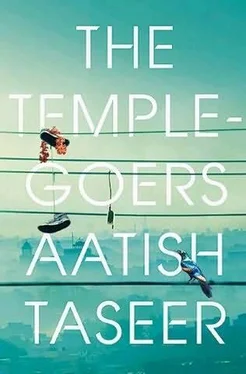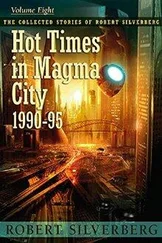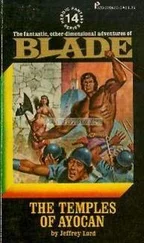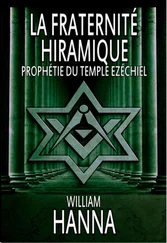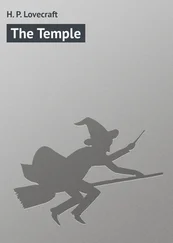I offered tea again. He said he didn’t normally, but he would.
When Vatsala came in with the tea a few minutes later, Zafar was saying that life had forced him to become an intellectual mercenary. Our first thrill as teacher and student were those two words, neither of which I knew in Urdu. We stumbled about for a bit, coming up with ‘mental soldier’, then I was sure I had it. ‘Think tank!’ We backtracked and gave up. It was only when he explained further that I understood what he had meant.
Referring obliquely to the dissertations he had written for money before he wrote his own, he said, ‘I gave birth to nine PhDs before I was born, and after my birth I have given birth to three more. It’s dishonest, I know. I take money to write people’s theses for them, undeserving people. It’s wrong, I know. But I only ever did it from need. I feel that makes it less wrong.’
‘How did you start doing it?’
‘I used to work as an accountant,’ he replied, ‘but that slipped away from me. The accounts were computerized. I needed money badly. I even had a breakdown, you know?’
‘What kind of breakdown?’
‘A nervous breakdown. I was lucky. A south Indian doctor helped me. Only he knew what it was. Without him, I wouldn’t be here today. There was a danger of brain haemorrhage.’
‘Can that happen from a nervous breakdown?’
‘Yes. My head used to become so hot my wife couldn’t touch it.’
I began to think of his sores differently.
‘He used to tell me, “You have to stop thinking.” I said, “Doctor saab, it is my nature. Can you order a flower to stop giving off its scent? It is God-given.” ’
He shook lightly with inaudible laughter, finishing in a wheeze.
‘At that point,’ he said, ‘a PhD candidate came to me. He had a famously strict adviser. A man who used to tear up theses if he didn’t like them. He asked me to help him. I said, “Listen, I can’t do this. I haven’t done your research. I don’t know what you wish to say.” But he went away and came back with all his books, begging me. I said, “Let’s just try it. If he likes it, then we’ll continue.” He agreed and I wrote the thesis.’
‘Did the professor like it?’
‘He said it was the best thing he’d read in twenty years of advising. After that,’ he added bitterly, ‘word spread. Would you like a cigarette?’
‘Yes,’ I replied, though I wasn’t really a smoker, ‘but outside.’
We smoked a Win cigarette on Sanyogita’s front balcony. There, overlooking the single mango tree, he brought up money.
‘I can’t accept less than five thousand,’ he said, taking back the blue and white packet.
‘A month?’
‘Yes.’
My face became hot with shame, but I said nothing. Neither his sores nor his haggard face could have expressed his poverty more extremely. He wanted five thousand rupees for two to three hours, five days a week. I didn’t know how to say I wanted to give him more. I didn’t want to upset his calculations.
Then there was a soundless disturbance in the air and a splatter. I turned to Zafar and saw that a moist indigo wound had appeared on his safari suit. I followed its dripping to the floor. A red rubber hoop lay among the drops. Zafar’s face screwed up like a child’s about to cry.
A white sedan with tinted windows drove by, leaving behind a trail of hiphop.
‘Holi,’ he spat, and dropped his cigarette into the colour. It fizzled and ran blue.
‘A water balloon. Oh, God, I’m so sorry.’
‘Why are you sorry?’
‘I don’t know, for bringing you out here.’
Just then the front door rattled and Sanyogita came in. She had been Holi shopping. The wooden ends of steel water guns stuck out from the bags she carried. I tried to signal to her to put them down. Zafar saw and looked irritated. I think he felt I was portraying him as a Holi curmudgeon.
‘By all means play,’ he said, ignoring me and addressing Sanyogita, ‘I’ve played too. But these balloons are not nice. Spoiling people’s work clothes when they’re not prepared. Zafar Moradabadi.’
Sanyogita smiled, suppressing greater amusement. She held out her hand. He seemed unsure what to do with it. He dropped his head in greeting. Then he said he would call me after all the madness was over. It was Holi that weekend.
‘Baby’s found a creature!’ Sanyogita said after he had left. ‘He seems so sweet.’ She made her eyes big and sorrowful and scrunched up her mouth in imitation. ‘How old do you think he is?’
‘He said he was born in ’51.’
‘But he’s young, then!’
‘That’s what I said, that he was nearly a decade younger than our parents. But he said life had made him old.’
‘Oh, you must keep him. Where will we put him?’
‘Sanyogita, he has his own house. He’s only coming for a few hours in the afternoon.’
‘But it’ll be so nice to have him here, in the evenings, when all the other creepy-crawlies come out.’
I suddenly felt very sad, thinking of him going home: the ‘conveyance’ he mentioned, an auto-rickshaw; through the smoke and roar of Connaught Place; past naked bulbs and into the evening congestion of the old city; his safari suit stained blue; his wife and her acknowledgement under dim fluctuating light that it couldn’t be saved.
Sanyogita thought I’d taken her joke amiss. She pulled me towards her.
‘Come here, baby. I’m only joking. I think he’s the sweetest man I ever saw.’
Before the metro claimed her house, my aunt had a Holi party every year. The house was in the centre of Delhi with a large lawn and the party was famous. Hundreds of people came. And armies of children, of which I had been one, attacked them at the door, shooting jets of blue and pink paint on to their white clothes. They shrieked, shielding cold glasses of beer and Bloody Mary. Their starched muslin clothes caved in and clung to their bodies; paunches and lace bras appeared through the cloth. Then grown-ups who had already been coloured came with handfuls of green, yellow and pink powder. They smeared the faces of the newcomers, who put up token resistance but knew that there was no isolation greater than being left uncoloured. By noon the colours began to coalesce into a single rust red. As the sun climbed higher, the festival became more adult. Clay cups of bhang and small portions of food in leaf plates went through the crowd. Glasses of beer were traded in for full bottles. Musicians appeared with drums around their necks. By lunchtime, as the children wandered around vagrantly, the dance floor began to fill. The sun’s blaze fell on the yellow bungalow and its pale reflection appeared in steel tubs of red water. These late-afternoon hours, a painted crowd with gleaming eyes and teeth, dancing on the lawn, were difficult for me as a child. I think, though I didn’t know it then, that I felt their menace. My good memories of Holi were formed by those hours that came before.
But at the Times of India ’s Holi party, there were no hours that came before; it began after lunch. In the years since the metro claimed my aunt’s house, it had become the city’s main party. It was also in an old bungalow with a lawn, but had an impersonal quality. At the door there were bouncers in black T-shirts with pre-splashed daubs of green and pink on them and ‘It’s Holi!’ written in rubbery white letters below. One held a clipboard with a list. Sanyogita’s friend, Ra, slid ahead of us, saying, ‘Princess of Kusumapur and her boyfriend.’ I didn’t mind, but Sanyogita was embarrassed. She was not the Princess of Kusumapur, her mother was; and technically, even she wasn’t any more. The bouncers looked blank but waved us in. Ra turned back, rolled his eyes bitterly and whispered, ‘Happy Holi.’
Читать дальше
